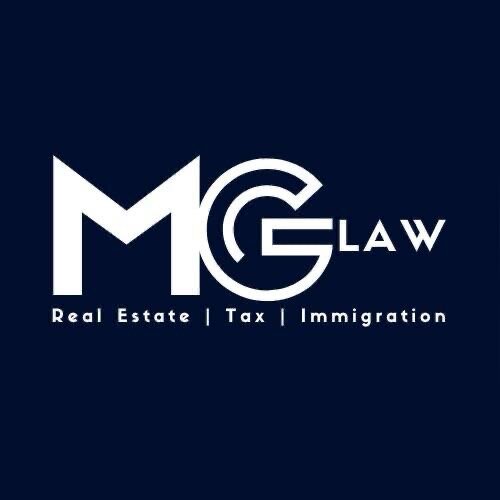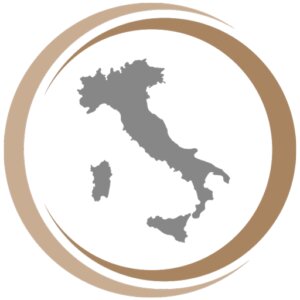Best Sanctions & Export Controls Lawyers in Italy
Share your needs with us, get contacted by law firms.
Free. Takes 2 min.
Or refine your search by selecting a city:
List of the best lawyers in Italy
About Sanctions & Export Controls Law in Italy
Sanctions and export controls are important legal mechanisms that regulate the transfer of goods, technology, services, and funds across Italy's borders. These laws are designed to fulfill Italy's international obligations, protect national security, and support global peace efforts. As a member of the European Union and the United Nations, Italy must comply with international sanctions regimes and ensure that businesses and individuals within its territory adhere to specific export restrictions, especially regarding sensitive goods or transactions with targeted countries or entities.
Why You May Need a Lawyer
The field of sanctions and export controls is complex and constantly evolving. You might require legal assistance in this area for reasons such as:
- Exporting goods or services to countries subject to sanctions or embargoes
- Uncertainty about whether your products, technology, or business partners fall under specific export restrictions
- Being investigated or contacted by authorities for alleged violations of sanctions or export control laws
- Acquiring or merging with a business that operates internationally
- Processing international financial transactions that may involve restricted parties or jurisdictions
- Seeking to ensure compliance programs are up to date with the latest legal requirements
- Seeking clarification on licensing requirements for dual-use goods (items that have both civilian and military uses)
Legal advice can help mitigate risks, avoid costly penalties, and ensure lawful conduct in an increasingly regulated global environment.
Local Laws Overview
Italy applies sanctions and export controls both at a national and supranational level, primarily derived from European Union regulations and United Nations Security Council resolutions. Key aspects include:
- EU Sanctions Implementation: Italy enforces all EU sanctions measures, which may target countries, entities, or individuals for specific political or security reasons.
- National Sanctions: Italian law can impose additional controls, particularly regarding national security or foreign policy interests.
- Export Control of Dual-Use Goods: Regulation (EU) 2021/821 requires businesses exporting dual-use items from Italy to have licenses for certain destinations or end-users.
- Military Goods: Military and defense-related goods are subject to strict national and EU export controls, administered by the Ministry of Foreign Affairs and International Cooperation.
- Financial Sanctions: Restrictions often apply to financial transactions with individuals, companies, or countries subject to sanctions, requiring banks and businesses to screen transactions.
- Enforcement: Authorities such as the Guardia di Finanza and the Ministry of Economic Development are responsible for monitoring, investigation, and enforcement.
- Licensing: Export licenses must be obtained before certain goods, technologies, or intellectual property can be sent outside Italy or the EU, depending on their classification and destination.
Frequently Asked Questions
What are sanctions in the context of Italian law?
Sanctions are legal measures imposed to restrict trade, financial transactions, or other business dealings with specific countries, entities, or individuals, typically for reasons of national security, foreign policy, or compliance with international obligations.
Who administers sanctions and export controls in Italy?
Sanctions and export controls in Italy are overseen by several authorities, including the Ministry of Foreign Affairs and International Cooperation, the Ministry of Economic Development, and the Guardia di Finanza, often in coordination with European Union institutions.
What are dual-use goods?
Dual-use goods are items, software, or technology that can be used for both civilian and military applications. Their export is subject to specific controls to prevent misuse, especially in countries of concern or with restricted entities.
How do I know if my business transactions are affected by sanctions?
You must regularly check EU and UN sanctions lists and assess whether your trading partners, end-users, or transaction destinations face restrictions. Legal counsel can help with ongoing due diligence and compliance.
What happens if I violate sanctions or export controls?
Violating sanctions or export controls can result in severe penalties, including fines, imprisonment, confiscation of goods, and reputational damage. Enforcement actions by Italian authorities can be both criminal and administrative.
Do I need a license to export controlled goods from Italy?
Yes, exporting controlled goods such as dual-use items or military technology outside Italy or the EU typically requires an export license from the competent authorities. The need for a license depends on the classification of the goods and the destination country.
Are financial transactions also subject to controls?
Yes, financial sanctions can prohibit or restrict transactions with individuals, organizations, or countries on sanctions lists. Banks and businesses must perform due diligence to avoid breaching these measures.
How do Italian laws interact with EU and UN sanctions?
Italy is obliged to implement all EU and UN sanctions, which take direct effect and must be enforced by all public and private entities in Italy. National measures can add further restrictions on top of these.
Can I appeal or seek an exemption from sanctions measures?
Some sanctions regulations provide procedures for requesting licenses, exemptions, or delisting in specific circumstances. Legal advice is often necessary to navigate these procedures and prepare proper documentation.
What should I do if approached by authorities concerning a possible violation?
It is important to consult with a qualified lawyer before responding, as statements or actions may affect your case. A lawyer can assist in dealing with authorities, protect your rights, and develop an appropriate response strategy.
Additional Resources
If you need to learn more or seek official guidance, consider consulting the following:
- The Italian Ministry of Foreign Affairs and International Cooperation
- The Italian Ministry of Economic Development
- Guardia di Finanza (Financial Police)
- European Union's official website for information on EU sanctions and export controls
- United Nations Sanctions Committees for global sanctions lists
- Chambers of Commerce and business associations, which may offer compliance guidance
- Professional legal associations specializing in international trade and compliance
Next Steps
If you believe your business activities or personal circumstances involve sanctions or export control issues, consider the following steps:
- Identify if your goods, partners, or destinations are subject to any sanctions or controls
- Gather all relevant documents and information related to your transactions or exports
- Consult with a lawyer experienced in sanctions and export controls to assess your situation
- If necessary, apply for required licenses or authorizations before proceeding with business operations
- Stay updated with ongoing changes in Italian, EU, and international law regarding sanctions and export controls
- Develop or update your internal compliance procedures to minimize future risks
Legal advice is crucial in this field. An experienced lawyer can help you interpret complicated regulations, prepare proper documentation, and represent you in case of a dispute or investigation. Taking proactive steps will help you stay compliant and avoid unexpected legal issues.
Lawzana helps you find the best lawyers and law firms in Italy through a curated and pre-screened list of qualified legal professionals. Our platform offers rankings and detailed profiles of attorneys and law firms, allowing you to compare based on practice areas, including Sanctions & Export Controls, experience, and client feedback.
Each profile includes a description of the firm's areas of practice, client reviews, team members and partners, year of establishment, spoken languages, office locations, contact information, social media presence, and any published articles or resources. Most firms on our platform speak English and are experienced in both local and international legal matters.
Get a quote from top-rated law firms in Italy — quickly, securely, and without unnecessary hassle.
Disclaimer:
The information provided on this page is for general informational purposes only and does not constitute legal advice. While we strive to ensure the accuracy and relevance of the content, legal information may change over time, and interpretations of the law can vary. You should always consult with a qualified legal professional for advice specific to your situation.
We disclaim all liability for actions taken or not taken based on the content of this page. If you believe any information is incorrect or outdated, please contact us, and we will review and update it where appropriate.
Browse sanctions & export controls law firms by city in Italy
Refine your search by selecting a city.

















